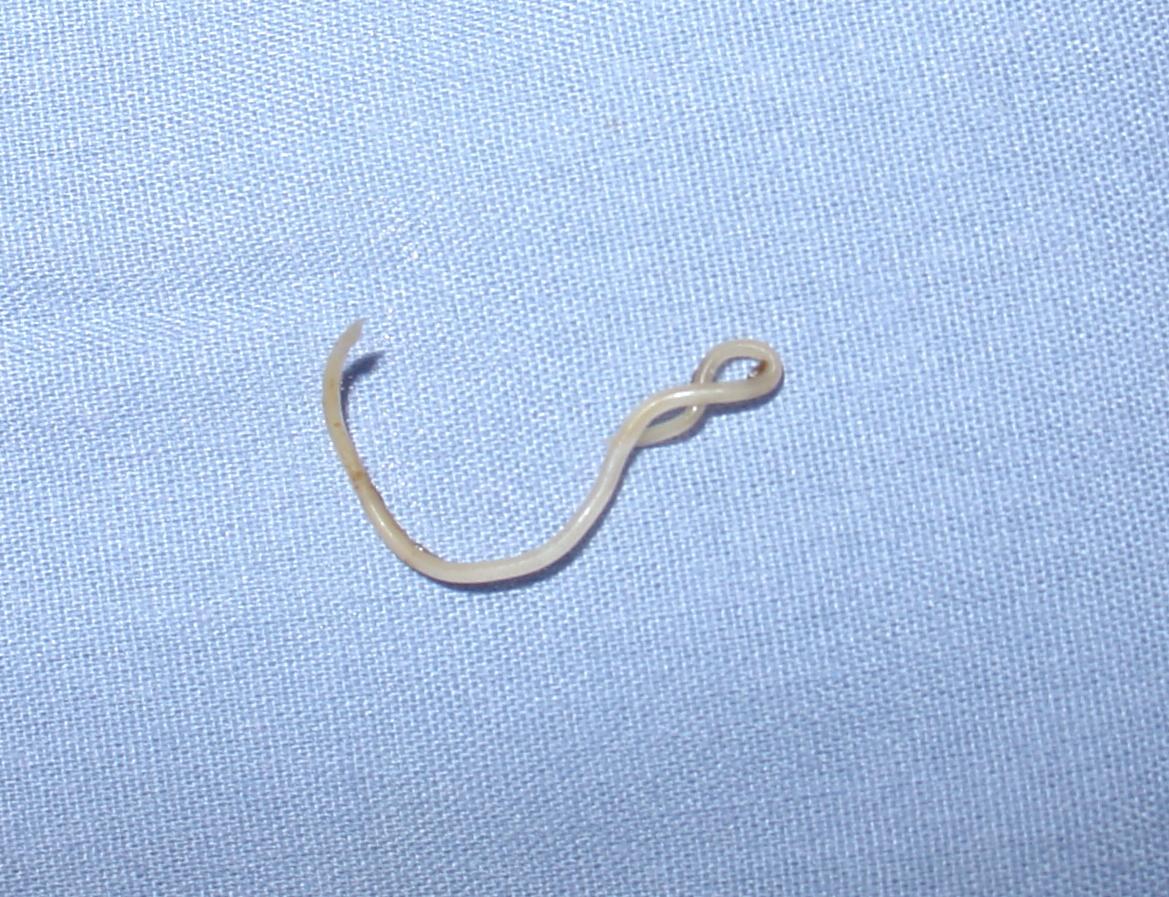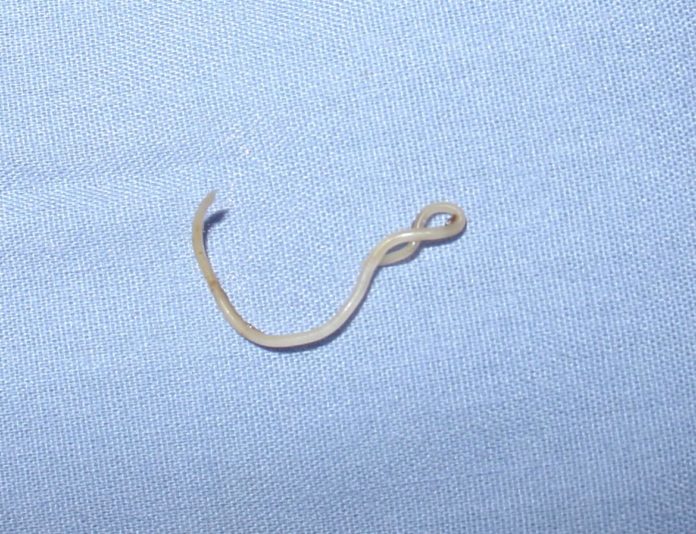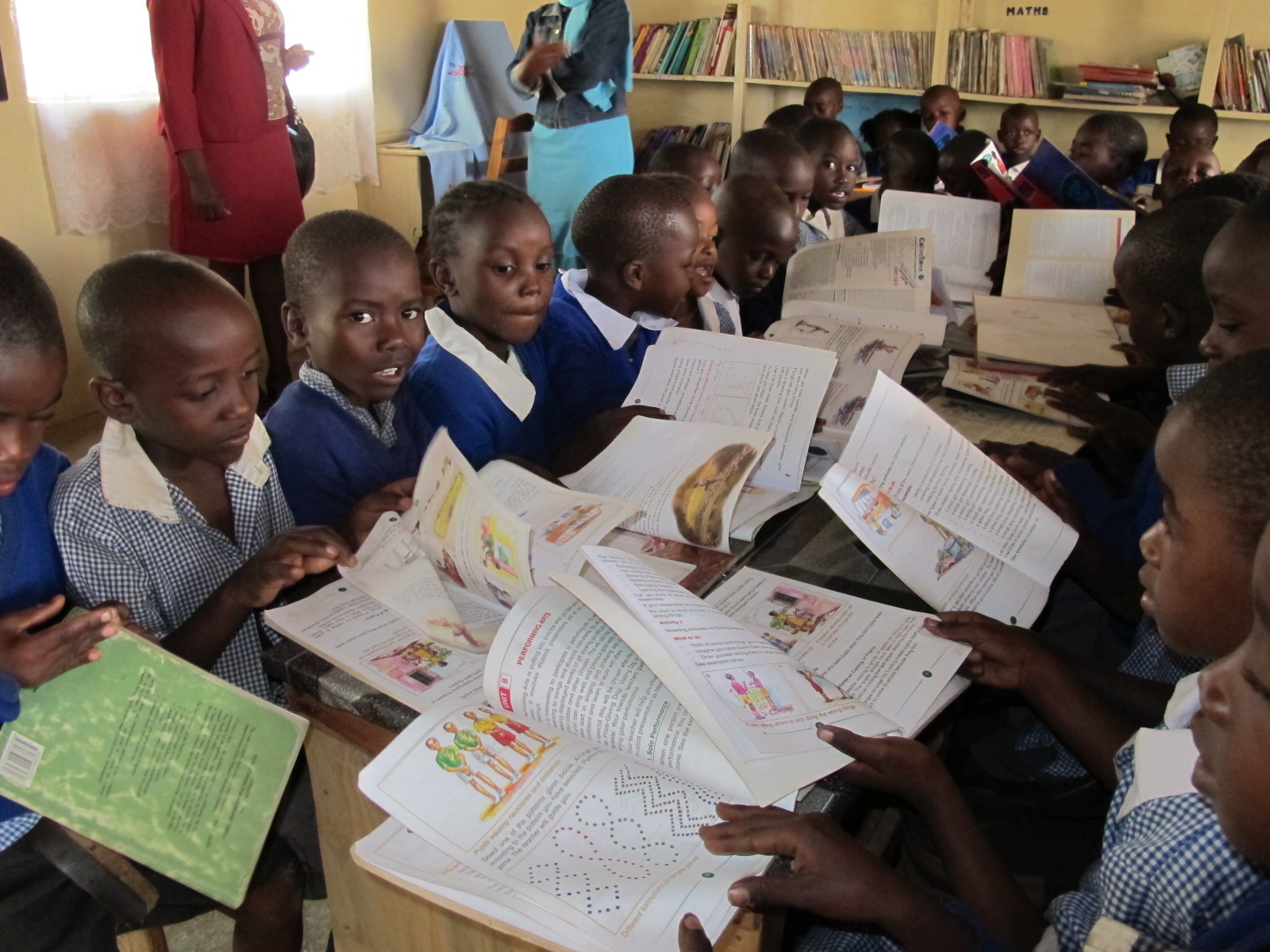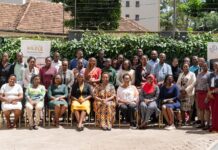By Mary mwendwa
Lack of enough toilets and poor hygiene practices pose a danger to fight against worms among school going children in Kenya, scientists say.
According to Dr.Charles Mwandawiro, Chief Research Officer, school health activities,(Kenya Medical Research Institute ) KEMRI. ”Lack of safe drinking water and poor sanitation have posed a challenge to curb many of the Neglected Tropical Diseases.(NTDs), like intestinal worms or soil-transmitted Helminths Bilharzia, Elephantiasis among others.
Many Kenyans still don’t use toilets and this has contributed to reinfections especially intestinal worms which have adverse effects on both children and adults if not treated.
“As a researcher, I have worked closely with the ministry of health and the National school-based deworming program to see school going children are free from worm infection.When we started treatment in schools, especially those that had been mapped to have high burden of worm infections, infections were high, after mass treatment from 2009, through the National School-Based Deworming Program (NSBDP), and by the help of London School of Hygiene and Tropical Medicine Prof.Simon Brooker’s online tool (www.thiswormyworld.org) the figures dropped drastically. However, the greatest challenge has been to maintain the treatment gains with many households in the rural and informal settlements not having proper hygiene and safe water for drinking.” Mwandawiro says.
The NSBDP is implemented by the Ministry of Education, Science, and Technology in collaboration with the Ministry of Health with technical assistance from Deworm the World Initiative and Evidence Action. Targeted treatment areas with the aim of deworming every child aged 2-14years, whether they are enrolled or not enrolled in school.
Dr.Mwandawiro continues to narrate his own personal encounter with worms. “worms are life threatening if not treated. My wife almost went to the grave as a result of hookworms. I had no clue that one day my close family member would be a victim of worm infection.My wife used to go to a vegetable market near a slum sometime back, she never used to wear closed shoes. Hookworm eggs penetrated her skin and she got infected. She became weak day by day and anemic too. Efforts to establish what she was suffering from turned futile after we visited many medical experts. One day a friend at KEMRI requested we do a stool test. That is when the big shock dawned on us that she had been suffering from hookworm infection which had put her life in danger.”
Dr .Mwandawiro’s wife case is a reflection of how some people suffer from worm infections even those living in good conditions without knowledge that they can pick worms from environments there interact with. Intestinal Parasites, for example, worms, can get into the intestines by going through the mouth from uncooked or unwashed food, contaminated water or hands, or by skin contact with larva infected soil, they can also be transferred by the sexual act of anilingus /anal-oral sex in some cases.
When the organisms are swallowed, they move into the intestine, where they can reproduce and cause symptoms. Children are particularly susceptible if they are not thoroughly cleaned after coming into contact with infected soil that is present in environments that they may frequently visit such as sandboxes and school playgrounds. People in developing countries are also at particular risk due to drinking water from sources that may be contaminated with parasites that colonize the gastrointestinal tract.
Kenya is among three countries, Ghana and Thailand in the world that were appointed and funded by the Japanese government to run parasite control centers respectively.

“By having the parasite control center at KEMRI puts Kenya at a very good position to research train and treat worms among its population. However, there needs to more efforts in hygiene and sanitation to see full eradication of these parasites that are life threatening.
“I have been researching on worms since 2003 and we have mapped out areas with high burden, Nyanza, western, Riftvalley and coast , In areas around the rice fields have a lot of worm infections too .During the first year of the deworming program in schools in 2013, Narok County has the highest worms infection in school children. One in every five children was infected with worms. Round worms were most common during our tests.Vihiga , Bungoma and Kisii counties had high number of infections too with each having rates of 50 ,49 and 46 percent of infections. Hookworms, Askaris lumbricoides /round worms and and Trichuris Trichiura/Whip worms were common worms we found in stool samples that were collected. Out of the 180 schools that participated in the exercise had their children infected by these worms.”
Dr.Mwandawiro confirms how worms have a cycle of reinfection and therefore after treatment the gains must be maintained. Children who are not part of the free primary education do not get into the mass treatment program. Some schools which are private have their own plans and children who are not in school may miss out due to various challenges that are experienced.
According to Evidence Action, A non-government organization which has been mandated to implement the deworming project in public schools,6.4 million children in over 15, 000 schools in 28 counties have been treated so far.The children were provided with deworming tablets that are friendly to swallow and there has been a big improvement in school attendance afterwards.
However, deworming faces some challenges that Dr.Mwandawiro points out that needs to be looked into for the success of complete eradication. He says that no research has been done in terms of drug resistance, also the diagnostic method of Kato –Katz (WHO recommended method for diagnosis of intestinal worms ) which only detects eggs in a sample stool of one gram .”The kato –katz method may not be effective in diagnosing worms density in stool. Other methods need to be invented for efficiency purposes and population density which is making people scramble for few resources is another challenge too”. He notes.
Roundworms lead in infections among children and have serious effects on the child. Symptoms like ringworms on skin, pale skin, coughs, anaemia , extended abdomen poor attention in class and not sitting upright should be viewed with concern.
“Deworming at household level should be taken seriously, especially in humid climates where the eggs survive well. Hookworms penetrate through the skin and therefore if the eggs get in contact with skin they penetrate and go straight to intestinal walls where the live and feed on body nutrients. People should deworm as frequent as they wish so that they are free from these worms. One can never know when or how they can get infected but deworming regularly puts one on safe side. ”He advises.
“The commonly used treatment drug for soil transmitted – helminths or worms is Albendazole and Praziquantel which deepens Bilhazia.However there is no formula for children under five to treat Bilhazia yet there are cases in coast which were discovered during our research.”
By cutting nails short, washing hands after toilet use and drinking safe water can help reduce infection of worms in both children and adults.















